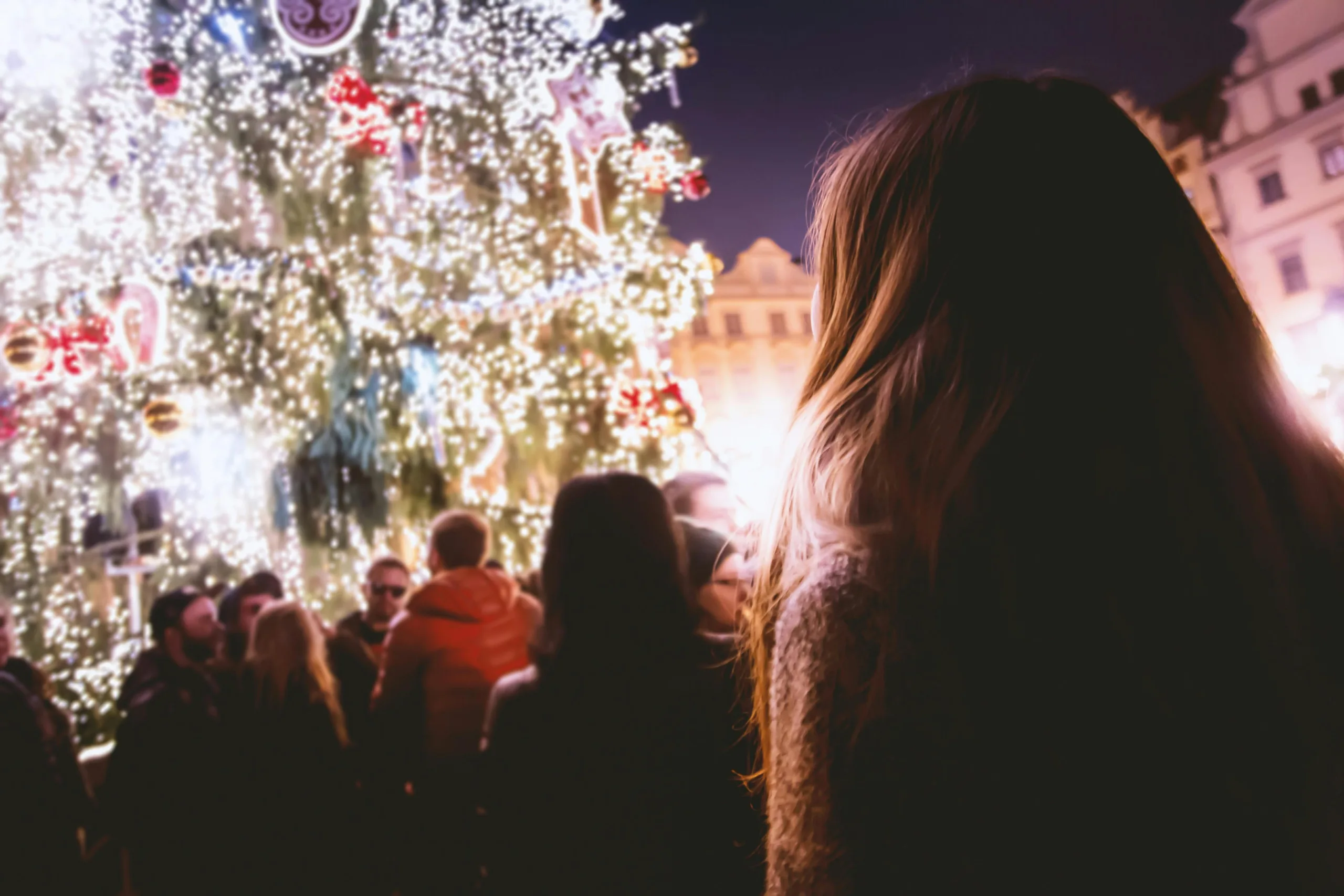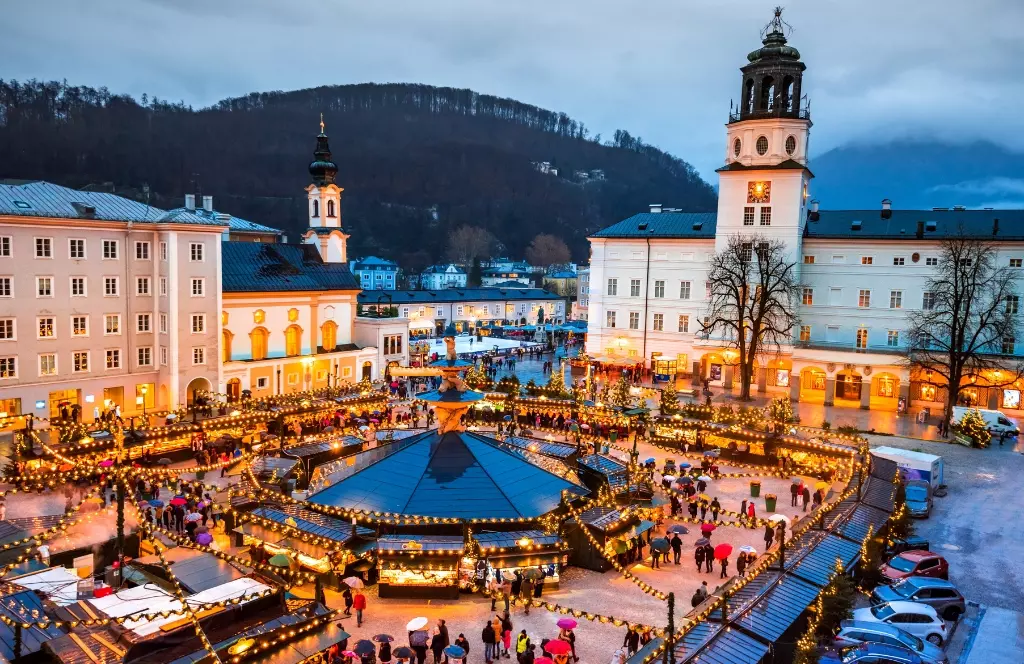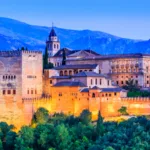Christmas markets in Europe are a magical experience. They offer festive lights, delicious treats, and unique gifts.
Planning a visit can be tricky. The best time to visit these markets varies. Each city has its own charm and schedule. In this blog post, we will guide you on the ideal times to explore these festive wonders. From bustling city centers to quaint villages, European Christmas markets have something special for everyone.
Whether you seek traditional crafts or tasty treats, knowing the right time to go can make your visit unforgettable. Let’s dive into the enchanting world of European Christmas markets and find out when you should plan your trip for the best experience.
Best Months To Visit
Planning a trip to the Christmas markets in Europe? Picking the right month can make all the difference. The magic starts as early as November and lasts through December. Each month offers unique experiences and special moments. Here’s a guide to help you decide the best time to visit.
November
November is the start of the Christmas market season. The crowds are smaller, making it easier to explore. The weather is crisp, perfect for a cozy atmosphere. Visiting in November means you can start your holiday shopping early. Many markets open mid-November, offering a wide range of gifts and decorations. The festive lights and decorations are up, creating a magical setting. November also tends to be less expensive for travel and accommodation.
December
December is the peak of the Christmas market season. The markets are in full swing, buzzing with energy. The festive spirit is at its highest, making it a memorable experience. December brings a wider variety of events and activities. Ice skating rinks, live music, and parades are common. The weather is colder, often bringing snow, adding to the charm. Visiting in December means experiencing the markets at their best. The atmosphere is more vibrant, with more locals and tourists alike.
Top Countries For Christmas Markets
Explore the enchanting Christmas markets in Europe during late November and December. Experience festive decorations, local crafts, and holiday treats. Popular destinations include Germany, Austria, and France.
Christmas markets in Europe create a magical atmosphere. Each country offers unique traditions and festive fun. Let’s explore the top countries for Christmas markets.
Germany
Germany is famous for its Christmas markets. The country offers many traditional markets with beautiful lights. Visit the Nuremberg Christkindlesmarkt for a historic experience. Sip on warm Glühwein and enjoy delicious gingerbread. Berlin also has many markets, each with a unique charm.
Austria
Austria’s Christmas markets are enchanting. The Vienna Christmas Dream is a must-see. The market is in front of the City Hall, with stunning decorations. Salzburg’s Christmas market is also beautiful. The city offers a mix of music and festive treats.
France
France offers charming Christmas markets. Strasbourg, known as the “Capital of Christmas,” has a famous market. The market is large and full of festive cheer. Paris also has many markets, each with its own style. Enjoy French pastries and warm drinks while you shop.
Switzerland
Switzerland’s Christmas markets are picturesque. Zurich has one of the largest indoor Christmas markets. The market is inside the main train station, with a huge Christmas tree. Basel’s market is also popular and beautifully decorated. Enjoy Swiss chocolates and other treats.
“`
Iconic Christmas Markets
Europe’s Christmas markets are magical destinations that offer festive cheer. These markets are known for their enchanting ambiance, unique gifts, and delicious treats. Each market has its own charm, drawing visitors from all over the world. Let’s explore some of the most iconic Christmas markets in Europe.
Nuremberg, Germany
The Nuremberg Christmas Market is one of the oldest and most famous in Germany. It is known for its traditional wooden stalls and handcrafted ornaments. The aroma of gingerbread fills the air. Visitors can enjoy mulled wine and sausages while browsing unique gifts.
Vienna, Austria
Vienna’s Christmas markets are set against the backdrop of stunning architecture. The main market is in front of the City Hall. It features beautifully decorated stalls and a large ice rink. Choirs sing carols, adding to the festive atmosphere. The market offers a variety of crafts and gourmet foods.
Strasbourg, France
Strasbourg is known as the “Capital of Christmas.” Its market is one of the oldest in Europe. The city is adorned with lights and decorations. Visitors can explore over 300 stalls. The market offers Alsatian treats and handmade gifts. The central tree is a must-see attraction.
Zurich, Switzerland
Zurich’s Christmas market is located at the main train station. It features the largest indoor Christmas market in Europe. The centerpiece is a 50-foot-tall Christmas tree. The tree is decorated with thousands of Swarovski crystals. Visitors can enjoy Swiss chocolates and fondue. The market also has live music and entertainment.

Unique Experiences
Visiting Christmas markets in Europe is truly magical. The atmosphere brims with festive cheer. Unique experiences await around every corner. From traditional foods to handcrafted gifts, there’s something for everyone. Live entertainment adds to the enchantment. Let’s explore these unique experiences in detail.
Traditional Foods
Christmas markets are a paradise for food lovers. Indulge in hot mulled wine. Savor freshly baked gingerbread cookies. Enjoy hearty sausages and roasted chestnuts. Each market offers its own regional specialties. The aromas alone are worth the visit. The flavors will leave you wanting more.
Crafts And Gifts
Handcrafted items make perfect gifts. Discover unique ornaments and decorations. Find beautifully carved wooden toys. Admire intricate lacework and textiles. Many artisans showcase their skills on-site. You can even watch them create their masterpieces. These treasures make memorable keepsakes.
Live Entertainment
Live performances bring the markets to life. Enjoy carolers singing festive tunes. Watch street performers and dancers. Experience live nativity scenes and puppet shows. Many markets host concerts and theater performances. The entertainment adds to the festive spirit. It creates a lively and joyful atmosphere.
Weather Considerations
When planning a visit to the enchanting Christmas markets in Europe, weather conditions play a crucial role. Understanding the typical weather patterns can help you prepare better and make the most of your visit. Let’s explore some key weather considerations.
Average Temperatures
The average temperatures during the Christmas market season can vary significantly across Europe. Here is a table summarizing the average temperatures in some popular destinations:
| City | Average Temperature (°C) |
|---|---|
| Vienna, Austria | 2°C – 6°C |
| Prague, Czech Republic | -1°C – 4°C |
| Berlin, Germany | 0°C – 5°C |
| Budapest, Hungary | 0°C – 4°C |
| Paris, France | 3°C – 7°C |
Pack warm clothing, including coats, hats, and gloves. The temperatures can dip below freezing, especially in the evenings.
Snowfall Expectations
Snow adds a magical touch to Christmas markets, but it’s not guaranteed everywhere. Here are the snowfall expectations for some cities:
- Vienna, Austria: Occasional snowfall in December. Usually light and adds charm.
- Prague, Czech Republic: More frequent snowfall. Creates a winter wonderland.
- Berlin, Germany: Snowfall possible but not very common. Mostly light flurries.
- Budapest, Hungary: Rare snowfall. When it snows, it’s often light.
- Paris, France: Snow is uncommon. Generally mild winters with occasional flurries.
For a higher chance of experiencing snow, consider visiting northern or eastern Europe. These regions are more likely to have snowy weather during the Christmas season.

Travel Tips
Planning a trip to Europe’s Christmas markets? Timing is everything. Visiting at the right time ensures you enjoy the magic without stress. Here are some travel tips to help you make the most of your experience.
Booking Accommodations
Book your stay early. Christmas markets attract many visitors. Hotels fill up quickly. Secure your accommodation at least three months in advance. This ensures you have a comfortable place to return to after a day of exploring.
Consider staying near the market. This reduces travel time and maximizes your enjoyment. Look for hotels offering holiday packages. These often include market tours or festive meals.
Transportation
Research your transportation options. Public transport is often the best choice. It is usually reliable and convenient. Check train and bus schedules ahead of time. This helps you plan your days efficiently.
Consider purchasing a travel pass. Many cities offer passes for unlimited travel. This can save you money and hassle. If you plan to rent a car, book in advance. Winter roads can be tricky. Ensure your rental includes winter tires.
Crowd Management
Visit markets during weekdays. Weekends are the busiest times. Arrive early in the day. This helps you avoid large crowds. Late afternoon and evening are peak hours. Plan your visit for the morning to enjoy a more relaxed experience.
Use smaller entrances if available. Main entrances can get crowded. Smaller ones often have shorter lines. Move slowly and soak in the atmosphere. The markets are meant to be enjoyed leisurely.

Frequently Asked Questions
When Do Christmas Markets In Europe Start?
Most Christmas markets in Europe start in late November. They usually run until Christmas Eve. Some extend until New Year’s.
Which European City Has The Best Christmas Market?
Many consider Vienna, Austria to have one of the best Christmas markets. It features beautiful decorations and a festive atmosphere.
What Is The Best Time To Visit Christmas Markets?
The best time to visit is early December. Crowds are smaller, and the markets are fully set up.
Are Christmas Markets Open During The Day?
Yes, Christmas markets are typically open during the day. They often start in the late morning and close by evening.
Conclusion
Christmas markets in Europe offer unforgettable experiences. The best time to visit is late November to early January. Enjoy the festive atmosphere, unique gifts, and delicious treats. Each market has its own charm and traditions. Plan your visit to coincide with local events and celebrations.
Embrace the holiday spirit and create lasting memories. Book early to secure the best deals on travel and accommodation. Don’t miss the chance to explore Europe’s magical Christmas markets. Happy holidays!



